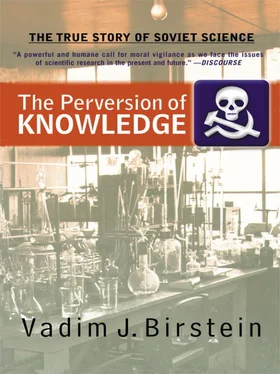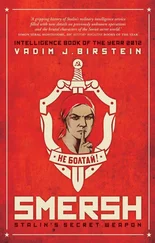Together with the GPU, the Politotdel [Political Department] of the Gosizdat [State Publishing Company] should check all periodicals published by private societies, sections of specialists within Trade Unions, and by different Narkomats (Narkomzem [Commissariat of Agriculture], Narkompros [Commissariat of Education], etc.) The publications which do not correspond to the line of Soviet politics must be closed (the Journal of Pirogov Society [the Society of Medical Doctors], etc.). 116
This draft was based on a report to Dzerzhinsky by Yakov Agranov, dated June 1, 1922. 117The draft was accepted at the Politburo meeting on June 8, 1922. 118A special GPU commission began to control the acceptance of students by the universities and colleges. 119A social-class-based selection of students had already been introduced by the Sovnarkom decree signed by Lenin and published on August 6, 1918. 120The decree instructed the Commissariat of Education (Narkompros) that priority should be given to students from the proletariat and poor peasantry, who were to be assured of receiving stipends. The OGPU restricted the number of students with “non-proletarian” backgrounds (children from the intelligentsia class). For acceptance, students had to have a special certificate of their political loyalty to the regime provided by the GPU. 121Additionally, any student organization had to be approved by the administration of the institution and registered at the local NKVD. 122The famous academician Ivan Pavlov was among the very few scientists who protested against the restrictive admission policies. 123
I remember my mother’s own stories about how the selection worked in 1927–1928. She applied for admission to the medical departments of two Moscow universities of the time. At the first she was rejected after the first exam on “political science,” which, in fact, was a kind of interrogation about her background, family, and political opinions by Party functionaries. She was not accepted because of her “bourgeois” background: My grandfather, Georgii Luppo, was an agricultural scientist who organized and directed a small museum at the Moscow Society of Agriculture. So my mother went dressed up as a peasant girl to the same “exam” at the second institute and pretended that she had just arrived from a distant provincial place. This time she was accepted. [1] Italicized inserts throughout the book are Vadim Birstein’s reflections.
The resolution introduced the censorship of all professional scientific journals and books, and the GPU took charge of enforcing this censorship. That same June, the Main Directorate on the Literature and Publishing Houses (Glavlit) was created. Its duty was “a preliminary study of all works prepared for publication or distribution, manuscripts or printed materials, periodicals and non-periodical materials, photos, drawings, maps, etc.” 124Later on, the selling of used books and published materials was also taken under control. Lists of forbidden publications were sent periodically to every bookstore, and any used book could not be sold without the special stamp of a GPU/NKVD/MGB/KGB inspector. 125This system existed until the end of the 1980s.
With direction from Lenin, on September 5, 1922, Dzerzhinsky wrote his deputy, Unshlikht, the following instruction:
The information [on the intelligentsia] should be collected by all our [the GPU] departments and transferred to the Department on Intelligentsia. An investigation file should be established on each intellectual, and each group and subgroup [of intelligentsia] should be investigated in all capacities by the competent comrades among whom our Department [on Intelligentsia] will distribute the study of these groups…. You should remember that the goal of our Department should be not only sending them to exile, but also… demoralizing [the intelligentsia] and promoting those persons who are ready to support the Soviet government without any reservation. 126
This instruction is key to understanding many events that followed in the history of Soviet science, some of which I will discuss in other chapters. Apparently, this instruction was also the first step in the creation of the special Secret Political Department within the Main Directorate of State Security (GUGB) in the NKVD, and after many reorganizations, in 1949 it became the Fifth MGB Directorate and ended up as the notorious Fifth KGB Directorate, the office that in the 1970s–1980s was in charge of combating Soviet dissidents such as Academician Andrei Sakharov, physicist Yurii Orlov, biologist Sergei Kovalev, and many other scientists. 127
In February 1923, Lenin’s health completely deteriorated. According to the memoirs of Vyacheslav Molotov, a Bolshevik colleague of Lenin and then Stalin, Lenin “asked Stalin to bring him some poison. Stalin didn’t bring it, even though he had promised. He said later that Lenin probably bore a grudge towards him because of this. ‘Even if you insist, I cannot do it,’ Stalin said. The problem was discussed at the Politburo.” 128Molotov did not deny the possibility that later, in 1953, Stalin was poisoned. To the question of an interviewer, “Was Stalin poisoned?” Molotov answered: “Possibly. But who is there to prove it now?” 129Poisons definitely played a serious role in Soviet history. The most mysterious of all poisoning cases will be discussed in Chapter 2.
In March 1923, a stroke immobilized Lenin, and in January 1924, he died. The attitude of the Party leaders toward scientists and intellectuals became even worse. Stalin, the new Bolshevik and Soviet leader, did not tolerate any independent thinking. On the surface, the signs were encouraging. In 1925, there were forty-two full members, 268 corresponding members (103 Soviet and 165 foreign), and 924 researchers and technicians within the academy system. 130But by 1930, state control of the Academy of Sciences was largely complete. 131On June 18, 1927, the Council of People’s Commissars approved the new Academy Statute, doubling the number of academic positions from forty-three to eighty-five (which allowed the Party to restrict the influence of scientists within the academy), and introduced new rules for the voting system. 132On April 19, 1928, Pravda announced forty-two positions for the next elections. On July 21, 1928, the daily paper Izvestiya published a list of 205 candidates created by the Central Committee and the academy. 133
The Politburo created a special commission to supervise the election. All regional Party organizations received the Central Committee “Top Secret” instruction “On a secret intervention in the campaign on the Academy of Sciences election” with two lists of names: List No. 1 with names of those candidates who should be supported by Party members and List No. 2 with those who should not be elected. 134The first list contained the names of ten Party functionaries, plus thirty-two well-known scientists such as Nikolai Vavilov, Dmitrii Pryanishnikov, and Nikolai Zelinsky (all three are discussed in Chapter 4). The second list contained the names of those whom the highest Party authorities did not recommend, such as Nikolai Koltsov, Leon Orbeli, and Lev (or Leo) Berg.
The results of voting in the Academy Physical, Mathematical, and Humanitarian Divisions on December 5 and 12, 1928, were depressing. Candidates from List No. 1 were elected without regard to whether they were scientists or Party functionaries. Academician Ivan Pavlov, who never accepted Bolshevik control, once again tried to protest in his letter to the Sovnarkom on December 19, 1928: “We, representatives of science, are now regarded as incompetent in our own area and we are ordered to elect as Academy members people, whom we, with clear conscience, can’t regard as scientists. Without exaggeration one can say that the old intelligentsia is partly exterminated, and partly becomes corrupt.” 135
Читать дальше











